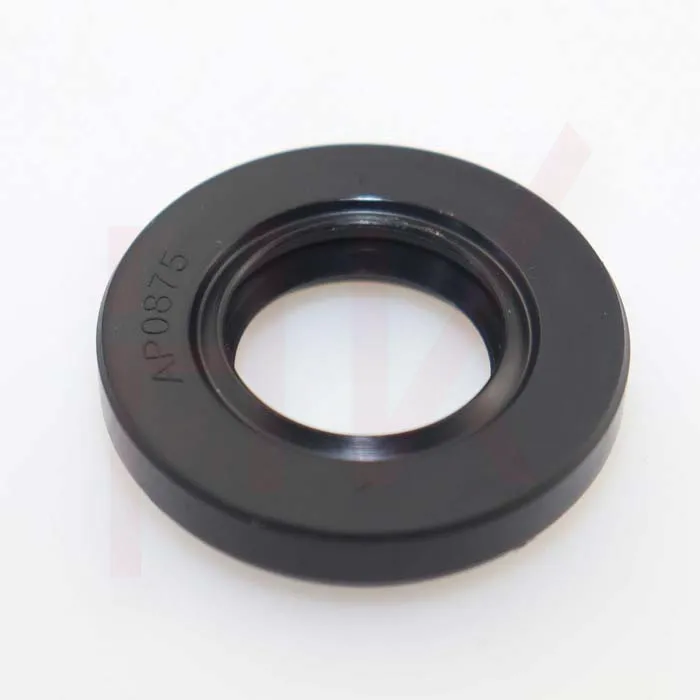nóv . 08, 2024 00:23 Back to list
Effective Solutions for Hydraulic Cylinder Wipers in Machinery Maintenance and Performance
Understanding Hydraulic Cylinder Wipers Essential Components for Optimal Performance
Hydraulic systems play a crucial role in various applications, from industrial machinery to automotive engineering. A fundamental component of these systems is the hydraulic cylinder, which is responsible for converting hydraulic energy into mechanical force. However, to ensure the efficient and reliable operation of hydraulic cylinders, the role of wipers is often overlooked but is incredibly important.
What Are Hydraulic Cylinder Wipers?
Hydraulic cylinder wipers, often called scraper seals or wiper seals, serve as the first line of defense in protecting the cylinder from external contaminants. They are designed to wipe away dirt, debris, and moisture from the rod of the hydraulic cylinder while preventing these contaminants from entering the hydraulic system. By keeping the hydraulic cylinder clean, wipers not only enhance the performance of the cylinder but also prolong its lifespan.
Importance of Wipers in Hydraulic Cylinders
1. Contamination Control The primary function of hydraulic cylinder wipers is to control contamination. Dust, dirt, and other foreign particles can significantly harm the cylinder's internal components, leading to wear and tear. By effectively wiping the rod, wipers help maintain a clean environment within the hydraulic system.
2. Leak Prevention Contaminants can cause failure in seals, leading to hydraulic fluid leaks. Wipers help prevent this by ensuring that any debris does not cause damage to the seals, which is critical for maintaining system pressure and performance.
3. Improved Performance A clean hydraulic system operates more efficiently. When contaminants are kept at bay, the hydraulic fluid can flow freely, minimizing resistance and wear. This translates to smoother operation and better performance of the hydraulic machine.
4. Cost-Efficiency By preventing damage caused by contamination, hydraulic cylinder wipers can save companies significant repair costs and downtime. Regularly maintaining these components can lead to a substantial increase in the overall efficiency and longevity of hydraulic systems.
Types of Hydraulic Cylinder Wipers
hydraulic cylinder wipers

Hydraulic cylinder wipers come in various shapes, sizes, and materials, each designed to meet specific operational requirements. Some common types include
- Polyurethane Wipers Known for their durability and resistance to abrasions, polyurethane wipers are popular in heavy-duty applications. They can withstand harsh environments and offer excellent performance in extreme temperatures.
- Rubber Wipers These are often used in less severe conditions. While not as durable as polyurethane, rubber wipers provide good flexibility and resistance to weathering.
- Metal Wipers In some applications, metal wipers may be used to scrape off tougher debris. They are generally combined with another softer material to ensure that they do not damage the hydraulic rod.
Maintenance of Hydraulic Cylinder Wipers
To maximize the efficiency and longevity of hydraulic cylinder wipers, regular maintenance is essential. Operators should routinely inspect wipers for signs of wear, which can include cracks, tears, or hardening due to environmental exposure. If any damage is identified, the wipers should be replaced immediately to prevent further harm to the hydraulic cylinder.
Additionally, operators should ensure that the hydraulic system is kept clean and well-lubricated. Following manufacturer guidelines for fluid maintenance and system checks can enhance the life of wipers and the hydraulic system as a whole.
Conclusion
In summary, hydraulic cylinder wipers are invaluable components that play a critical role in the functionality and longevity of hydraulic systems. By preventing contamination, enhancing performance, and offering cost-efficiency, these wipers are essential for any hydraulic application. Operators should prioritize the maintenance and timely replacement of wipers to ensure that their hydraulic systems operate effectively and efficiently. As technology continues to advance, the importance of these small yet mighty components will only grow, underscoring the need for a deeper understanding of their role in hydraulic systems.
-
The Trans-formative Journey of Wheel Hub Oil Seals
NewsJun.06,2025
-
Graphene-Enhanced Oil Seals: Revolutionizing High-Pressure Oil Sealing
NewsJun.06,2025
-
Future of Hydraulic Sealing: Advanced Intelligent TCN Oil Seals
NewsJun.06,2025
-
Don’t Let a Broken TCV Oil Seal Ruin Your Day
NewsJun.06,2025
-
Bio-Inspired Dust Seals for Better Sealing Performance
NewsJun.06,2025
-
Biodegradable and Sustainable Hydraulic Seal Materials
NewsJun.06,2025
-
Top Oil Seal Solutions for Your Industrial Needs
NewsMay.22,2025
Products categories
















